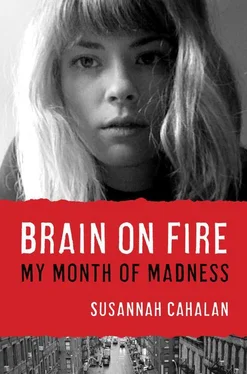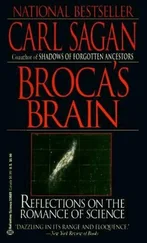Idid eventually return to work, but not until September, about a month after that partial return and almost seven months to the date after I had my breakdown at work. I recall agreeing obediently as Human Resources suggested that they would start me off slowly at first, part time for only a few days a week. Instead I jumped right back in as if I had never been gone. For years I had pursued my goals like a marathoner: steadily running off to my assignments, jogging to a subway to make it in on time for work, eyes and ears always attuned to the next career step. Now I had had the opportunity to stop, collect my breath, and reassess my destinations, but all I wanted to do was keep on moving.
Luckily the Post made it easy for me to dive back in feet first. As Paul had promised, my desk had been left literally untouched: all of my books, documents, and even a paper cup were still sitting there where I had left them.
My first assignments, both briefs, were relatively trivial: one was about a woman voted hottest bartender in New York City and the other a short profile on a drug addict who had just written a memoir. I was being eased back into the daily tasks of writing and reporting, but I didn’t care. This fieriness contrasted with my lackluster performance right before I left work seven months before, when I couldn’t muster up the verve even to interview John Walsh. Now I met any article, no matter how insignificant, with full and eager enthusiasm.
Though coworkers almost certainly walked on eggshells around me that first month, I didn’t notice. I was so focused on the future—on my next byline, on the next assignment—that I couldn’t accurately judge what was going on around me. Because I wasn’t able to type as quickly as I once did, I recorded most interviews. When I review them now, I hear an unfamiliar voice asking the questions: She speaks slowly and ploddingly, sometimes slurring her words. She sounds tipsy. Angela, my bodyguard, discreetly assisted me with stories without making it seem that I needed the help; Paul would invite me over to his desk as he edited, as if teaching me the five W’s of journalism all over again.
It took me over a week to finally get to the task of opening the seven months’ worth of unread mail and e-mails. I hated wondering what my sources thought when their e-mails bounced back or were never returned. Did they think I changed careers or moved to a new job? Did they care? These questions plagued me as I trudged through press releases and piles of books.
I was convinced that I was fully back to normal. In fact, I told Dr. Arslan as much when I saw him just before my first week back at work. At that point, I was on such low doses of medication that it was almost negligible. As we did every two weeks, my parents and I sat down around his desk.
“I’ll ask you this again. How do you feel out of 100?”
I didn’t even hesitate. “100,” I replied with conviction. Both my mom and dad nodded their heads this time. My mom finally agreed with my own assessment.
“Well, then, I have to say that you are no longer interesting,” Dr. Arslan said with a smile, and with that short statement, he released me from his care. He recommended that I continue on one more week of antianxiety and antipsychotic medications and then stop. I no longer needed them, he explained. To me, this meant that he had made the global evaluation that I had fully returned to health. My mom and dad each embraced me, and afterward we had a quiet celebration over eggs and coffee at a nearby diner.
Although we were in high spirits about Dr. Arslan’s appraisal, in reality I still had a long way to go before returning to the person I once was. It’s clear now that I was still in the midst of a very imprecise stage in recovery, which Dr. Dalmau and others are studying closely.
“The patients are back to normal, essentially, by family assessments, by friends’ assessments, and by physicians’ assessments, but they are not back to normal by the same patient’s assessment,” Dr. Dalmau explained to me during one of our early phone interviews. “And this lingers for quite a long time. Recovery takes as much as two to three years, or even longer.”
Patients may be able to return to work, function in society, or even live on their own, but they feel that they have more difficulty doing the things that had once come organically, leaving them essentially still far away from the person they were before the illness.
Right after I returned to work, Dr. Najjar gave me permission to highlight my hair, because the scar, which prevented my hair from growing back as promised, had finally healed enough to stand up to the harsh chemical treatment. I went to the Arrojo salon in SoHo, near the entrance to the Holland Tunnel, where my colorist streaked my hair a bold blond and a stylist cut wispy eye-length bangs that swooped to the right, covering up the bald spot. She asked how I got the scar, so I shared a bit of my story with her. She was so moved that she spent another hour putting my coarse hair (which had changed texture because of the medications) into rollers.
I was feeling like a million dollars as I sauntered down the subway stairway on my way back to Summit until I heard a familiar voice call out my name. I looked around, hoping that I had misheard, to find my ex-boyfriend a few stairs below me. I had not spoken to him since long before my illness.
“I heard what happened,” he said sheepishly. “I’m sorry I didn’t call, but I didn’t think you’d want to hear from me.”
I brushed this comment off, we exchanged a few pleasantries, and we said good-bye. This should have been the perfect moment to run into an ex, fresh out of the salon. But it felt destabilizing, and not in a good way. I could tell that he felt sorry for me, and there’s nothing worse than seeing pity radiating from the eyes of a former lover.
As I replayed the encounter while I waited on the platform, I caught sight of myself in the oncoming train and noticed how frizzy my curled hair looked, how puffy my face was, and how chubby my frame had become. Would I ever feel comfortable in my own skin again? Or would this self-doubt follow me around forever?
I was nothing like the confident “pre-” person this man had once dated, and I hated myself for how drastically I had changed.
Less than a month after I returned to work at the Post, my mother received an e-mail from one of Dr. Najjar’s assistants, inviting us to attend his lecture on anti-NMDA-receptor autoimmune encephalitis at NYU’s grand rounds, the medical school ritual when a doctor presents cases to students and peers.
That late September morning, the commuter traffic was bumper-to-bumper heading from New Jersey into midtown and we were running late. My mom, Allen, Stephen, and I ran to the lecture hall, where my dad, Angela, and Lauren, my friend and the Post ’s managing editor, were waiting by the entranceway.
“I think it started already,” Angela said as we entered the auditorium. The hundred or so seats were filled with white lab coats, all intently watching Dr. Najjar, who was onstage speaking rapidly about “autoimmune encephalitis.”
We had missed the introduction of SC, a twenty-four-year-old patient, so I didn’t yet realize he was talking about me as he listed all the tests that had come back clean, including three MRIs, hematology and urine toxicology screenings, and blood work. He added that the patient’s cerebrospinal fluid had higher-than-normal white lymphocytes, and then discussed his decision to move forward with a brain biopsy when they felt out of other options.
Читать дальше













